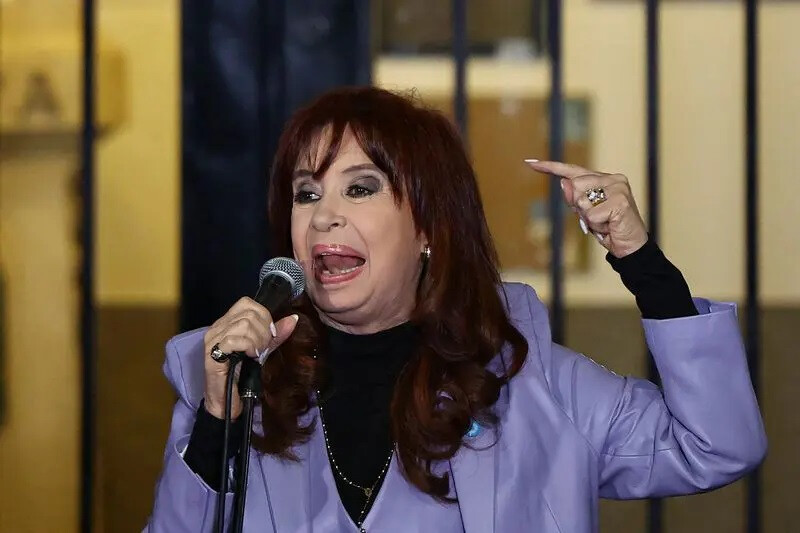
The Argentine Supreme Court on Tuesday (June 10, 2025) upheld the 6-year prison sentence handed down to former President Cristina Fernández de Kirchner for public works contract irregularities. This Supreme Court ruling effectively puts an end to the long legal battle surrounding former President Fernández, who left office in 2015, and is expected to be a major turning point in Argentina's political history.
The Supreme Court's Final Ruling and the Full Story of the 'Vialidad Case'
Argentina's highest court, the Supreme Court, rejected the appeal filed by former President Fernández's legal team against the lower court's ruling, upholding both the prison sentence and the permanent disqualification from public office. This ruling stems from the so-called 'Vialidad case,' which involved irregularities in road construction contracts.
The Vialidad case investigated the undue awarding of 51 road construction contracts to companies owned by businessman Lázaro Báez in the southern province of Santa Cruz during the presidencies of Néstor Kirchner (2003-2007) and his wife and successor, Cristina Fernández de Kirchner (2007-2015). Prosecutors alleged that the bidding processes were manipulated and construction costs inflated to favor Báez, squandering public funds. During this process, it was suggested that Báez's companies had close ties with the Kirchner couple and that the funds may have been illegally diverted.
Former President Fernández has consistently denied the charges, claiming that the legal proceedings were politically motivated persecution. She and her supporters have accused the case of being fabricated by political opponents and an attempt to remove a democratically elected leader.
Impact on Argentina's Political Landscape
The Supreme Court's ruling is expected to significantly impact former President Fernández's political influence. Although she is not currently serving as vice president, she remains a symbolic figure of Argentina's Peronist movement and commands a considerable base of support. With this ruling, her political activities will be restricted, and the possibility of her running in future elections will be completely ruled out, leading to considerable changes in Argentina's political landscape.
In particular, the current government of President Javier Milei has been at odds with former President Fernández, and some analysts suggest that this ruling could strengthen the Milei administration's reform efforts. Conversely, it could also provoke strong opposition from Fernández's supporters, potentially escalating social conflict.
Comparison with Political Corruption Cases in Major South American Countries
Former President Fernández's case can be seen as part of a broader movement to combat political corruption spreading across South America. In recent years, major South American countries have frequently seen former presidents and high-ranking officials indicted or convicted on large-scale corruption charges, such as Brazil's 'Lava Jato' (Car Wash) operation and Peru's 'Odebrecht' scandal.
Brazil's former President Lula da Silva was also imprisoned on corruption charges, but his conviction was later overturned, allowing him to make a political comeback. In Peru, five former presidents have been implicated in corruption scandals, and former President Alan García tragically committed suicide just before his arrest. These cases demonstrate the strong resolve of South American nations to clear out long-standing endemic political corruption, while also reflecting the complex situation where the independence of the judiciary is being tested.
In Argentina's case, even before former President Fernández, high-level corruption issues persisted, with former President Carlos Menem being convicted of arms trafficking and embezzlement of public funds. The upholding of former President Fernández's conviction is noteworthy for its potential to restore public trust in the independence and fairness of Argentina's judicial system.
The Rule of Law and the Future of Democracy
While former President Fernández's side claims the ruling is the result of political persecution, the Supreme Court's decision can be interpreted as a strong signal that the rule of law is firmly established in Argentina. The principle that even a former president is not above the law has been reaffirmed.
However, at the same time, there is concern that this ruling could further deepen political polarization in Argentine society. Supporters of former President Fernández may view this ruling as an attack on democracy, and the possibility of social unrest cannot be ruled out.
In conclusion, the Argentine Supreme Court's ruling goes beyond merely determining the legal fate of a former president. It sends an important message about the independence of Argentina's judicial system, its commitment to combating political corruption, and ultimately, the future of Argentine democracy. The world's attention is now focused on how Argentina's political sphere and society will receive this ruling and in what direction they will move forward.
[Copyright (c) Global Economic Times. All Rights Reserved.]




























